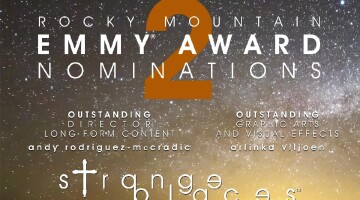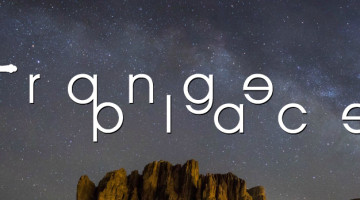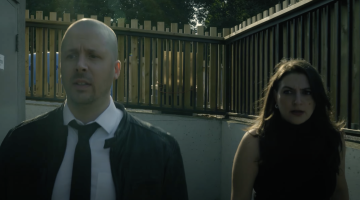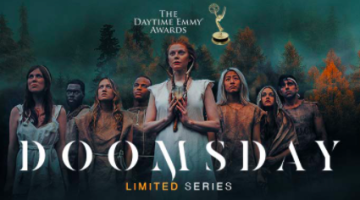Part 3 of 4: Filmmaker Atsushi Ogata reports from K Web Fest – OUR PANELS
Festivals are a great place to introduce yourself, your specialty, your working methods. At the K Web Fest in Seoul, Korea (July 30-31, 2015), I personally participated in two panels: “How I Made my Web Series in Asia” and “Global Web Series Expansion & Multi-Cultural Audience Engagement — the power of web series to reflect cultural values and national/regional narratives.” I was inspired by both sessions. My first session offered insights into the creative activities already taking place in Korea. Their collaboration with China also impressed me. In my second session, I heard first-hand accounts of how other fellow creators, with their unique individual visions and voices, have navigated their ways through the “borderless”, emerging world of web series. Moderators in both sessions skillfully engaged each of us to talk in depth about various aspects of our backgrounds and experiences.
PANEL: “HOW I MADE MY WEB SERIES IN ASIA”
Our panel was moderated by experienced film producer Young Kim (MIRU Pictures), who has worked across multiple platforms. Speakers consisted of Park Byunghwan, a Korean director who directed the successful award-winning Korean series ‘Dream Knight’; Bob Werley, American actor; and myself. Bob works primarily in Japan on national TV, films, commercials, theater and improv. At K Web Fest, he was nominated for Best Supporting Actor for his role in our series “Trick or Treat: I LOVE America!”, which I wrote and directed.
It was particularly interesting to hear how web series are already playing a large role in mainstream Korean entertainment, featuring traditional stars and leading to active co-productions and distribution in China and other neighboring countries. For “Dream Knight”, Byunghwan was brought onboard as a director by an established production company. He explained that in working on the series, he needed to be conscious of the cultural differences between China and Korea. In China, the pacing of web series tends to be longer than in Korea. For example, to show a water bottle being moved from one place to another, it would be necessary to show the whole process rather than cutting directly from the start position to the end, as one would in Korea. Not only was it intriguing for me to hear about this cultural difference in the first place, but I was further impressed by the fact that Byunghwan has already been directing co-production series, making adjustments for such cultural differences. It is difficult for me as a fellow director to imagine actually making such adjustments in the filming and editing process, while still keeping a clear sense of pacing.
Bob and I explained that compared to Korea or China, the web series world in Japan is still in its early stages. Film and television are very slow in embracing any kind of web content, so, most online video content in Japan is created by individuals with little training or experience in screenwriting or directing. This also tends to prevent stars and established actors from acting in online content. One exception might be branded web series, such as those by Canon or Nestle, which use professional cast and crew to produce narrative web series with product placements. Given this situation in Japan, Bob and I are each taking our own initiatives in starting our online sketch comedy channels/series: “Cho Japan” and “Yukata Cowboy,” respectively.
In our collaborative series “Trick or Treat: I LOVE America!”, which screened at K Web Fest, we worked with MEGWIN TV, one of the most popular YouTubers in Japan. Megwin works with physical comedy, and his fans are mostly Japanese boys in primary school. For this project he was interested in working with a script and director, for the first time, and was also looking to potentially expand his fan base to include audience outside of Japan.
We filmed our series at the YouTube Space Tokyo, a studio/production facility developed to help YouTube creators with substantial subscriptions, such as Megwin, to create new content. During the course of the year, they run different projects. In the fall of 2014, they were helping YouTubers create content for Halloween, using their impressive Halloween set, built in consultation with Guillermo del Toro, the director of the film “Pacific Rim”. I came up with an idea for a socially conscious Halloween comedy, based on a true incident from the 90’s when a Japanese exchange student was shot to death for knocking on the wrong door, while trick or treating in Louisiana. I met Megwin for the first time, pitched my idea to him, and he accepted it on the spot. I immediately contacted Bob and cast him to play the American character.
PANEL: “GLOBAL WEB SERIES EXPANSION & MULTI-CULTURAL AUDIENCE ENGAGMENT”
My second panel, was moderated by Kenneth Tan, Assistant Chief Executive Officer (Assessment & Corporate), Media Development Authority Singapore. Other panelists were Rose of Dolls (co-creator of web series “Gifted Corporation” and co-founder of the Bilbao Webfest, Spain) and Luke Eve (Australian filmmaker and creator of web series “Low Life”).
Each of us was invited to talk about our background and how each of our journey had brought us to the K Web Fest. Luke described his experiences travelling to London from Australia, first working in music videos and commercials before moving into film and television. Rose began researching web series for her graduate thesis at her university in Spain. Also having a background in music videos and acting, she began to co-create her own series. Attending the Marseille Web Fest, Rose became inspired to start her own web festival in Bilbao. I talked about my cross-cultural background of growing up in Japan and the US, first working in video art, being invited to Germany as a guest artist, showing meditative art videos across Europe and meeting a German producer, which then led to screenwriting grants, acting weekly for Dutch TV as a comedian, eventually directing a feature film in Japan and more recently, online work.
In regards to discussion about creating local or global content, and also whether to create for the masses (number of clicks) or niche audience, it was interesting to share thoughts with our fellow panelists. Addressing a heavy subject with humor in his series, Luke (“Low Life”) targeted a “niche audience” and tried to stay true to himself by not seeking to artificially raise numbers. Rose chose to film their whole series in English so as to make their series available to the global audience beyond Spain. In my case, because of the closed-ness of Japan, I’m now forced to subtitle or dub my English language series “Yukata Cowboy”, into Japanese in order to make it accessible and available to the larger Japanese public. Rose brought up the term “glocal”, referring to work, which may have global appeal, but is also more specific to the “local” or “niche audience.”

“Global Web Series Expansion & Multi-Cultural Engagement” panel at K Web Fest, Seoul, Korea
with Priya Suriamurthi (Media Development Authority, Singapore), Linda Tan, Moderator Kenneth Tan (Media Development Authority, Singapore), Rose of Dolls (Bilbao Web Fest, “Gifted Corporation”), Atsushi Ogata, Luke Eve (“Low Life”)
© Globetrot Productions 2015










No Comment